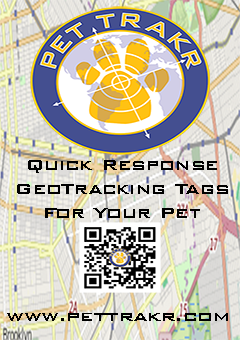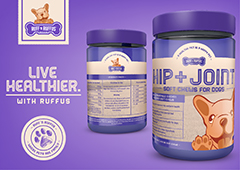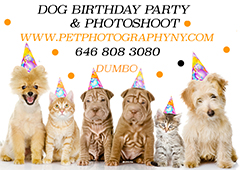★ON-Line Exclusive★
Toxins All Around Us
How to protect your pets?
By Steve Whitney
It can be overwhelming sifting through all the information available regarding training, feeding, bathing, and health care for our pets. Have you ever taken a moment to think about what chemical toxins that are around our homes, autos, lawns and gardens? It’s easy to overlook most commonly ingested environmental household toxins so we’re here to give you a heads up. We have compiled this list from data provided by the top pet insurance companies in the United States. Education is the best defense. We can protect our pets from poisons by learning what harmful substances may be lurking in our backyards, their safe use, proper storage and what to do in case of an emergency. Let’s take a look around your home for some of these dangerous situations. Prevention, they say, is the best cure.
Drug toxicity and overdose is the number one claim for pet insurance companies. There are more claims in this category than all other poisonings combined. Pet owners often give pets over-the-counter or prescription drugs for their ailments, unaware that even given in small amounts, many of these drugs cannot be metabolized by pets fast enough to prevent an overdose. Never give pets medications without consulting a veterinarian.
Pets will get into just about anything. Pay particular attention to old items stored in the basement or garage. Household products such as bleach, liquid potpourri, magic erasers, deodorants, toiletries, even sunscreens are poisonous to pets. Choose chemically safe / non-toxic alternatives. Sit Stay Forever makes an animal-friendly sunscreen that is 100% organic and safe even if licked or ingested.
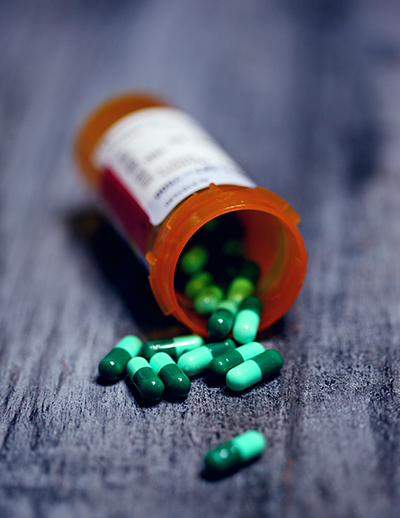
Rodenticides are designed to appeal to small mammals, that is why many of them taste great. Pets are most often exposed when they access rodenticides in storage areas such as garages and sheds. Even if these products are used in areas off limits to pets, keep in mind that rodents and insects can carry these poisons throughout your home.
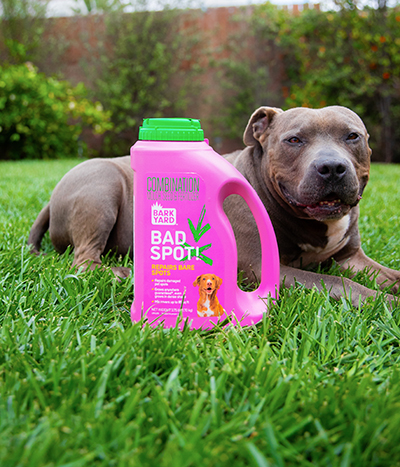
A study funded by NCBI (The National Center for Biotechnology Information) examined how dogs were affected by our chemically treated lawns and found herbicides in the urine of dogs after home lawn chemicals were applied. According to the American Animal Hospital Association signs of pesticide toxicity include vomiting, diarrhea, excessive salivation, tremors, pin-point pupils or seizures.
The lawn and garden care chemicals most notorious for being toxic are 2, 4-D (Ortho), Glyphosate (Round Up) Carbaryl (Sevin), Pronamide, Chlorothalonil, or Maneb.
The debate of whether a chemical is safe for you and your pet is ongoing. The decision of what is used in your own back yard rests within the individual. However, with a little investigation you can find many effective natural alternatives to harsh chemicals. Organizations like your state’s Cooperative Extension, local feed and plant nurseries are now offering many different options in this rapidly expanding field of products. One such product on the market is Bark Yard lawn care and repair, which offers chemically safe grass seed and feed.
PlantsMany plants that are toxic to pets are very common in the backyard.. The symptoms from exposure range from skin irritation to being responsible for serious health issues. Here is a complete list of dangerous plants.
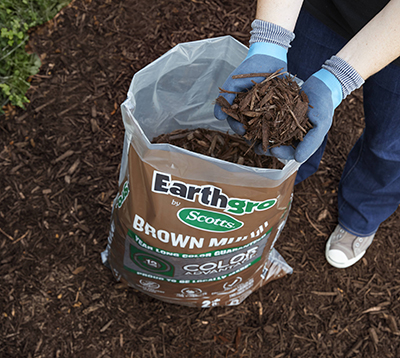
There are many benefits to compositing, however, pet owners need to be vigilant about fencing off this area to your pets. These piles of decomposing and decaying organic matter and molding food products have the potential to contain tremorgenic mycotoxins, which are toxic to both pets and wildlife.
Mulch ProductsCocoa bean mulch which is frequently used for home landscaping contains extremely harmful substances known as methylxanthines (specifically caffeine and theobromine). Keep your pets safe by looking for the MSC Certification Logo, it certifies that a mulch or soil product is free of CCA-treated wood. Scott’s Earthgro Mulch is MSC-certified. Made from forest products, it helps naturally conserve soil moisture, moderate soil temperature and prevent weeds.
MushroomsWhile the frequency of dangerous mushroom toxicity is very unlikely, there are varieties that exist throughout the USA that may be very dangerous. The lack of readily available identification of mushrooms lands all ingestions in the category of toxic until proven otherwise. Once again your local Cooperative Extension or Veterinarian can help you identify these dangerous mushrooms.
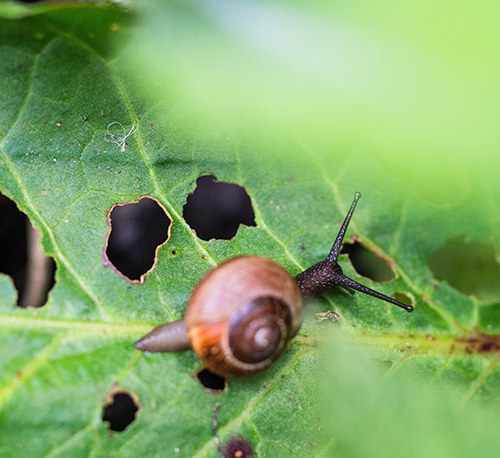
Slug and Snail Baits
Slug and snail baits are available in a variety of forms (pellets, granular, powder, and liquid). The active toxic ingredient is typically metaldehyde. Avoid these baits if you have pets. Get to the vet as soon as possible if you think your pet has ingested any of these baits.
ToadsToads can be toxic. There are 2 species of poisonous toads in the USA. These toads are most commonly found in Colorado, Arizona, Texas, Hawaii, and Florida. If you live in those areas you could find more specific information by calling your state’s Cooperative Extension or your local veterinarian.
Lead paint
We all know the dangers of lead poisoning. Take a look in your basement and backyard for any signs of peeling paint. This can include tool handles, shed siding, furniture, flooring etc. If you identify peeling, chipping or rotting paint, remove immediately.
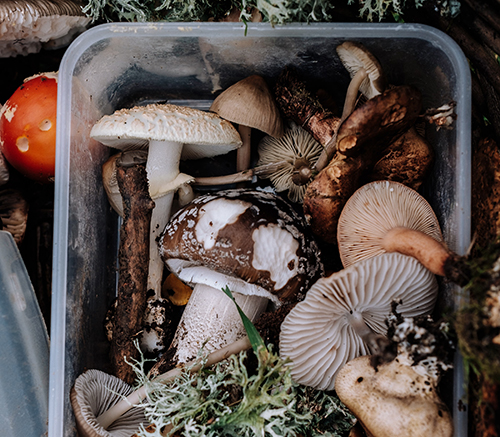
We need to become our own advocates through vigilant research. The scientifically proven efficiency of many of these “natural / safe” chemicals is still open to debate, so you will many times have to draw your own conclusions. You can start by conducting a thorough investigation of your pets’ living environment. Walk around your home and take inventory of potential dangers.
Pet Poison Helpline is an animal poison control center available 24/7 to pet owners and veterinary professionals seeking expert assistance with a potentially poisoned pet. Treatment advice is available for all species, including dogs, cats, birds, small mammals, large animals, and exotic species. (800) 213-6680.
Author’s note: Steve Whitney is a degreed environmentalist (MS, BS, OSU, Natural Resources) and a lifelong owner and trainer of horses, dogs and cats. He is also the owner of Sit. Stay. Forever. Safety First Pet Products.








